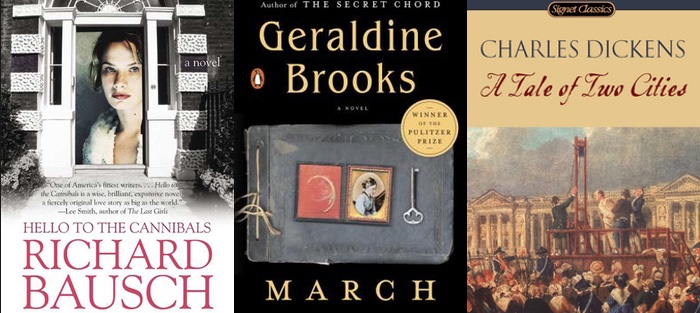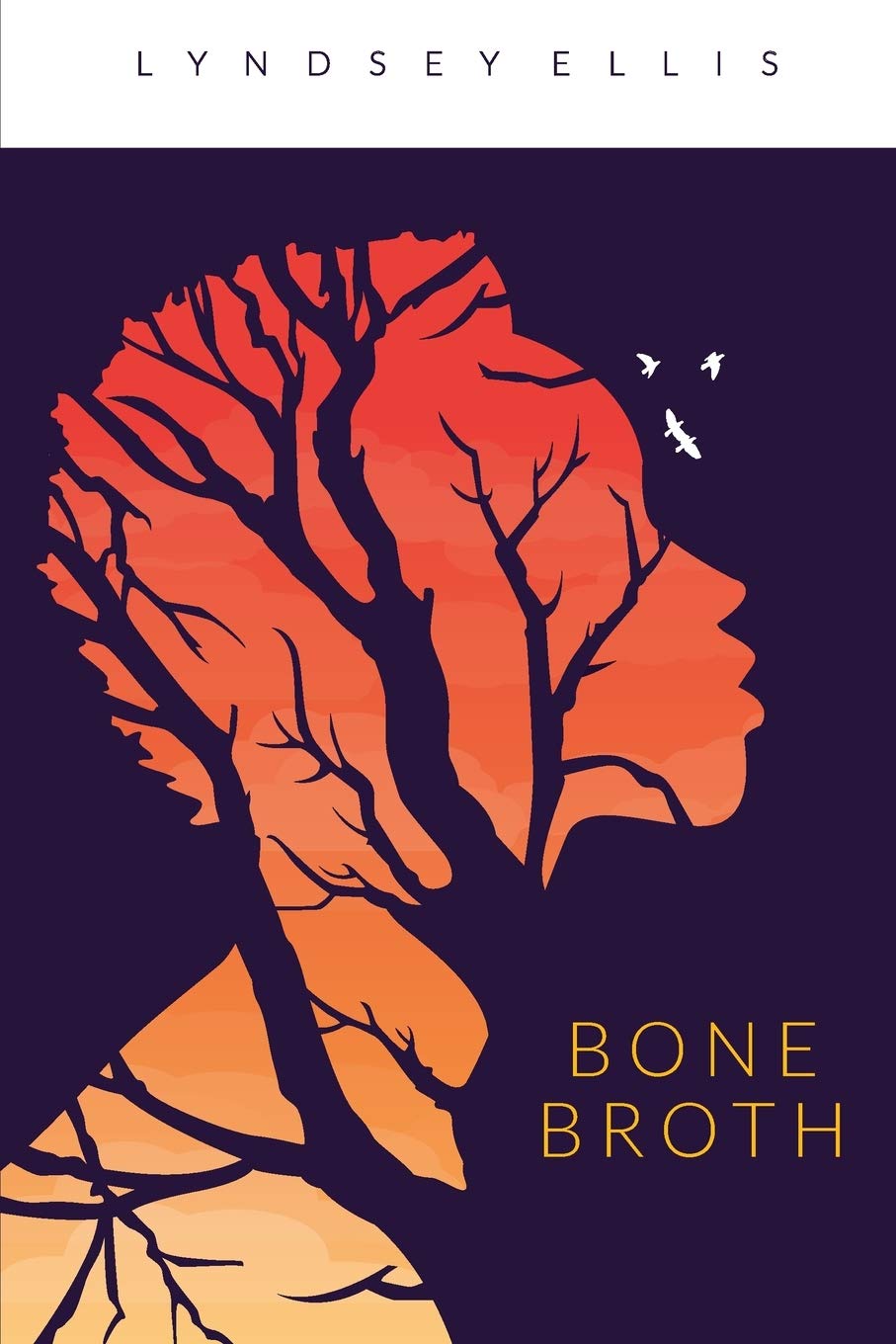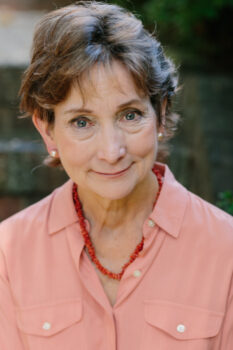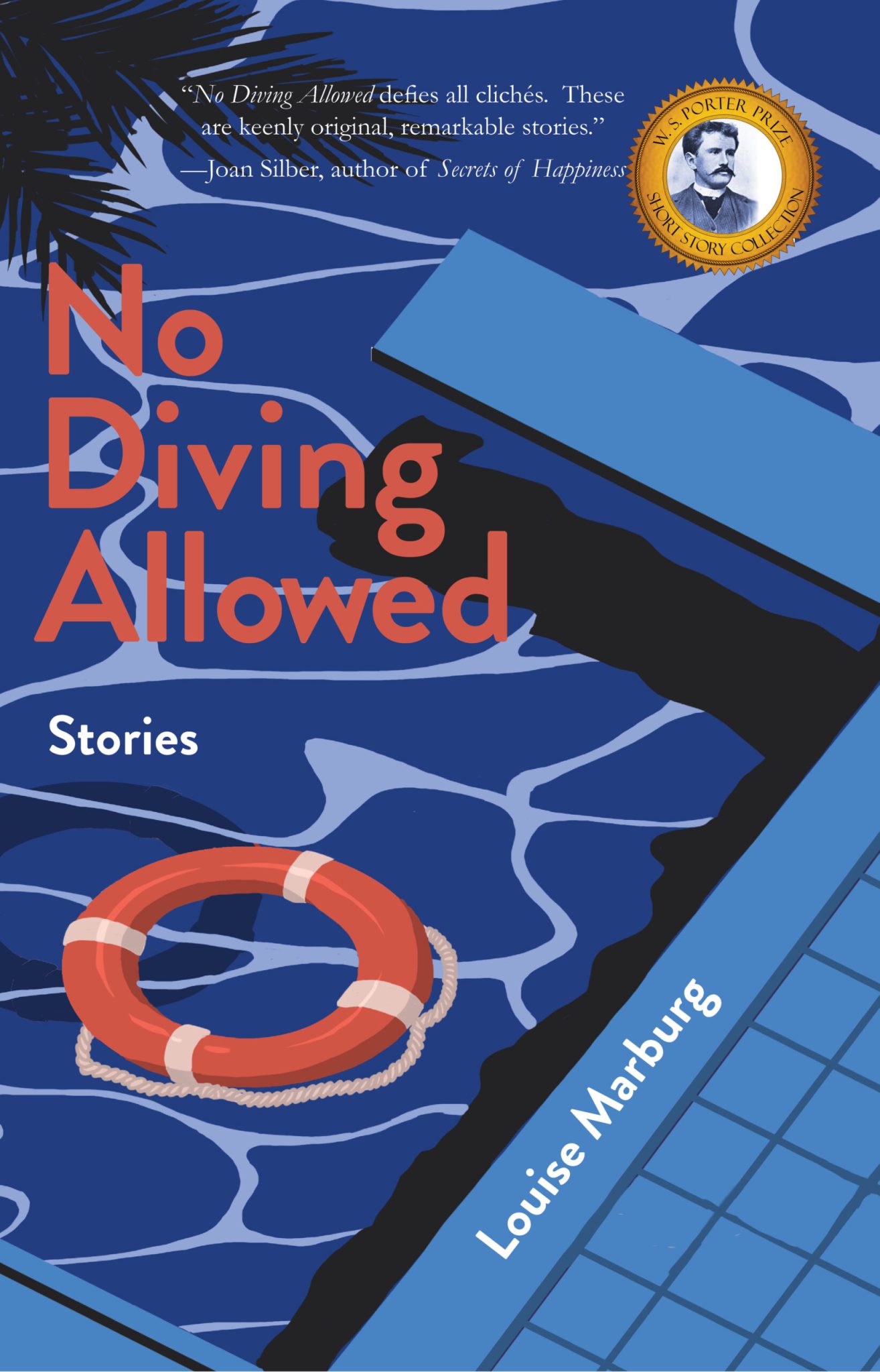Historical fiction is never solely about the past. Its subject may take us to another place in time, but the author is a product of the present, and, consciously or not, writes in response to contemporary concerns. A historical novel succeeds when it tells a relevant human story in an authentic and moving way. But how do we approach such a task? How do we navigate, and then translate, the past’s lost and often foreign landscape in a way that engages readers and conveys a sense of immediacy and authenticity?
As good travelers.
Although historical novelists write from research, rather than personal experience, about places in time that we cannot physically explore, we employ a traveler’s hunger for discovery, her sense of wonder and displacement; we apply her reflective instinct. The work of the historical novelist is an ever-deepening process of immersion, from tourist to expat to native.
This place in time, a term I’ve appropriated from author Karen Joy Fowler, delimits the context of a story; the context is the circumstances into which characters are born and comprises not only the physical landscape, but also the political, religious, economic, and racial landscapes, and suggests the conflicts characters will be bound to face. It is the world readers enter when they open a book. While often unfamiliar and therefore more apparent in historical fiction, context drives all stories and certainly all fiction. “This is what the whole exercise of writing fiction is about,” says Richard Bausch. “You put people into a context involving the struggles that life presents us with.” Or, to invert a phrase favored by Ron Carlson, we ask the question: “Into what moment has this life come?”
A wealthy white woman in Oakland will face different struggles than the Honduran immigrant who cleans for her. The life of a Creole slave in antebellum New Orleans will differ from that of a light skinned black woman in 2010. A young muggle in London will encounter different hazards than a wizard at school at Hogwarts.
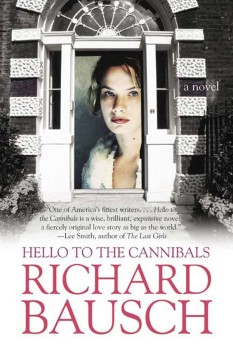 The more skillfully we craft the context of a story, the more convincing the illusion of authenticity. This is a large part of our goal when writing historical fiction: to create the illusion of authenticity. In non-fiction the word authentic is often used synonymously with the word genuine. Is the story genuine? In other words, is it a true account, however artfully constructed? This measure doesn’t suit fiction, even historical fiction. It does little good to ask, is the story true? Of course not, entirely. The question that matters in fiction is: could it have been true? Given the context created–be it a world of magic, or a leper colony on the Nile–could it have been true?
The more skillfully we craft the context of a story, the more convincing the illusion of authenticity. This is a large part of our goal when writing historical fiction: to create the illusion of authenticity. In non-fiction the word authentic is often used synonymously with the word genuine. Is the story genuine? In other words, is it a true account, however artfully constructed? This measure doesn’t suit fiction, even historical fiction. It does little good to ask, is the story true? Of course not, entirely. The question that matters in fiction is: could it have been true? Given the context created–be it a world of magic, or a leper colony on the Nile–could it have been true?
Of his novel, Hello to the Cannibals (Harper, 2002), about a 19th century explorer, Richard Bausch says: “I made up what happens to [Mary] in Paris. I made up her conversations and I imagined what it must have been like in that house when the news of what happened in Little Big Horn came in, several days after a letter in which Mary’s father said he was going to join Custer…I made all that up in context.” In both instances, the overlap between the real and imagined, between the plausible and the documented, creates a resonance in the imagination (the author’s and reader’s), and heightens the illusion of authenticity.
So far we’ve bandied around terms—place in time, context, authenticity—not because the terms themselves are important, but because they help us to define part of our goal: to create a story set in another place in time, with a context so convincing it lends the illusion of authenticity. Our larger purpose, however, is not to define terms or goals, but to demonstrate an ever-deepening traveler’s approach to the research and writing process. For this we must follow our traveler from tourist, to expat, to native.
The Tourist:
Enter, stage right, the tourist. She has arrived in this place in time for a short stay, she thinks, bringing as her guide little more than an idea, a question, the germ of a story. What was life like for a woman alone in a rag tag community of men during the Gold Rush? How did five children and two women survive the massacre in Masada in 74 AD?
Go ahead and imagine all the stereotypes (good and bad) that might apply to our tourist. Of course, she is eager, inquisitive, but also saddled with unconscious assumptions and biases that color all she sees as odd or exotic; she has yet to understand that, in this place, she is the oddity, perceiving all through the narrow scope of her own experience. She visits well-known attractions: the state buildings, cemeteries, monuments, and museums. After scouring timelines and popular histories, she can spout dates of discoveries, wars, treaties, the names of leaders and consorts, the infamous and martyred. But she has yet to venture from well-worn, tourist friendly paths to the primary sources: the journals, letters home, the birth and death records and receipts that represent the apartments, bedrooms, alleyways and bars where real people live. Enthralled and distracted by fashions and facades, she sees only surfaces. Because she doesn’t yet know precisely what she needs to know, she gathers all she finds in an extra suitcase she’s brought for that purpose.
If she left now, if she returned to her desk to write from the limited perspective of the tourist, she risks fetishizing the place in time, offering generalizations instead of insights, and reducing the complexity of human experience to a few base drives.
But she doesn’t leave.
She does not leave because she’s become aware of the spirit of this place in time, aware, too, that she lacks the words to capture this spirit. She discovers primary sources, finds someone who will teach her typesetting and lacemaking. She travels backroads and alleyways down which she had been too wary or unobservant to venture before. And as she encounters intimate, unfiltered, personal details, begins to recognize how profoundly the similarities she shares with the people of this place in time overwhelm the differences.
Mark Twain said, “History doesn’t repeat itself, but it does rhyme.” Our traveler has begun to hear those rhymes. She hears, for instance, in stories of nineteenth-century Irish immigrants to the United States, experiences of migrant families whose children attend her classes. Similar prejudices and anxieties burden them, similar ambitions and hopes define them. She has begun, to quote Sir Walter Scott, to see beyond fashions and manners to “those passions common to men in all stages of society, and which have alike agitated the human heart, whether it throbbed under the steel corslet of the fifteenth century…or the blue frock and white dimity waistcoat of the present day. Upon these passions it is no doubt true that the state of manners and laws casts a necessary colouring; but the bearings…remain the same.”
Tolstoy phrased this same idea rather more strongly: “People of limited intelligence,” says one of his characters, “are fond of talking about ‘these days,’ imagining that they have discovered and appraised the peculiarities of ‘these days’ and that human nature changes with the times.”
After weeks, months, blinded by difference, our traveler suffers repeated shocks of recognition. In the political and social debates, she hears echoes of ongoing contemporary debates. What is definition of marriage? What rights does a woman deserve over her own body? She stops examining the past from the perspective of her own time, and begins to examine her time from the perspective of the past. She can’t leave, though she has learned enough to create a gripping and authentic context. Achieving an authentic context, she realizes, is only part of the goal, though the particulars of the other part remain a mystery. Aware something vital is missing from her story, she must stay here to find it.
So, she hands in her key to that sanitized compound of popular history where she began, rents a modest room downtown, and though she started weeks ago, begins to write in earnest.
The Expat:
Our traveler has become an expat, changed by discoveries she meant only to document. While not at home in the past, she has become too critical of her own time and place to fully return. She writes with new purpose and energy, but everything she writes now appears to reflect the present, an affliction she recognizes, as a virtue in authors she admires. Charles Dickens, in his blunt manner, made no secret of the fact that A Tale of Two Cities was a comment on his own time.
It was the best of times, it was the worst of times, it was the age of wisdom, it was the age of foolishness, it was the epoch of belief, it was the epoch of incredulity…in short, the period was so far like the present period, that some of its noisiest authorities insisted on its being received, for good or for evil, in the superlative degree of comparison only.
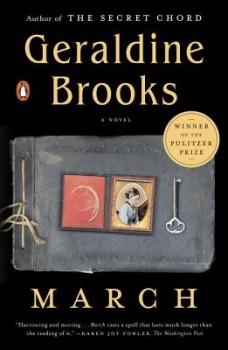 Geraldine Brooks, who spent years covering crises in the Middle East, Africa, and the Balkans for the Wall Street Journal, made what might be her most profound statement on war with her Pulitzer Prize winning Civil War novel, March. The novel follows Mr. March, a chaplain in the Union Army, as he struggles to maintain, and then recover, his faith and idealism. As readers we are privy to the self-censored accounts he mails home to his wife, and to the horrors of his lived experience. In this discrepancy—the discrepancy between March’s accounts and experiences—we come understand: Brooks is writing about more than the American Civil War. She is writing about men returning wounded, even if not obviously so, to their families in the Balkans. She is writing of your father’s refusal to speak about Vietnam. Of your brother, boyfriend, son’s emails home from Iraq or Afghanistan, and the unspoken—the unspeakable—that wakes him in the night and binds a vital part of him away from you. You wish you knew his truth and thank God you never will. They only thing you can do is cast your imagination back and allow Brooks to take you inside the Civil War with Mr. March, inside the living silences that mark all wars.
Geraldine Brooks, who spent years covering crises in the Middle East, Africa, and the Balkans for the Wall Street Journal, made what might be her most profound statement on war with her Pulitzer Prize winning Civil War novel, March. The novel follows Mr. March, a chaplain in the Union Army, as he struggles to maintain, and then recover, his faith and idealism. As readers we are privy to the self-censored accounts he mails home to his wife, and to the horrors of his lived experience. In this discrepancy—the discrepancy between March’s accounts and experiences—we come understand: Brooks is writing about more than the American Civil War. She is writing about men returning wounded, even if not obviously so, to their families in the Balkans. She is writing of your father’s refusal to speak about Vietnam. Of your brother, boyfriend, son’s emails home from Iraq or Afghanistan, and the unspoken—the unspeakable—that wakes him in the night and binds a vital part of him away from you. You wish you knew his truth and thank God you never will. They only thing you can do is cast your imagination back and allow Brooks to take you inside the Civil War with Mr. March, inside the living silences that mark all wars.
“Tell all the truth,” wrote Emily Dickenson, “but tell it slant.” Brooks has done this, told a vital contemporary truth through a historical narrative. Our traveler now wishes to do the same, to translate raw human experience with enough subtly, compassion, and depth to speak truth across time. How remarkable, she thinks as she finishes an overgrown mess of a draft, the more entrenched I become in the past, the more apparent the mirror it holds to my own place in time.
The Native:
This revelation has an unexpected effect on our traveler: she becomes a recluse. For weeks, even months, she does not leave that little rented room. The doors and windows are closed. The books are closed. No longer in the past or the present, she finds herself nowhere, alone with her overgrown manuscript, searching the pages she’s written for the spirit of the novel itself. And here is the irony for one so wedded to research: to find the spirit of book she must let go of her intentions and her slavish fidelity to fact. She must become a native, not of the place in time as she assumed, but of the book itself. She must enter the book as a reader, through the story, and in the story discover the moving, human truths she’d been looking for in facts.
Make no mistake. This is the hardest part of the process: to surrender her intentions and look beyond them; to look beyond the vast majority of enticing details she collected in that extra suitcase, beyond the fashions and linguistic facades of her own making; to cut, revise, and rewrite. Self-indulgent descriptions of lacemaking and typesetting? Gone. Pages and pages, gone. The spirit of the place in time, the spirit of her own time, the spirit of the book. This is the trinity she now serves. She is, as Willa Cather advised, “simplifying, and sacrificing many conceptions, good in themselves for the one that [is] better and more universal.”
Two months, one year, two. There is no prescribed period this culling and shaping will take, but only when done will she open the door, turn in her key, and return with this new thing, a book whose subject is the past, whose audience lives in the present, but which exists outside of each.
There is no formula. No shortcut. We can’t gaze across a field, temporal or earthly, and feel with other people, can’t hold their concerns apart from our own. We embed ourselves, and at the cost of our intentions, assumptions and misconceptions, open our hearts. Historical fiction, crafted well, demands this kind of travel.

